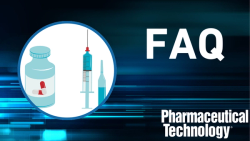
OR WAIT null SECS
NIH Announces Positive Results for Experimental Ebola Vaccine
NIH announced positive safety results from the vaccine, VSV-ZEBOV, and found that all patients in the study experienced a strong antibody response.
On April 1, 2015 the National Institutes of Health (NIH) and the Walter Reed Army Institute of Research (WRAIR) announced positive results from VSV-ZEBOV when tested in 40 healthy adults. The vaccine, meant to protect against the Ebola virus, was found to be safe and triggered a strong antibody response in all 40 volunteers who were given the vaccine.
The investigational vaccine, developed by scientists at the Public Health Agency of Canada and licensed to NewLink Genetics in collaboration with Merck, is based on a genetically modified and attenuated vesicular stomatitis virus (VSV). According to the press release, a gene for a VSV protein is replaced with a gene segment from a key protein in the Zaire strain of the Ebola virus.
The study involved 52 volunteers, 26 of which were at the NIH Clinical Center, while the other 26 were at a WRAIR clinic. Of the volunteers, six at each site were given a placebo and the remaining 40 received one of two different dosages of the investigational vaccine. The volunteers’ blood was tested after the vaccination to confirm antibody development against the Zaire strain of Ebola.
“The prompt, dose-dependent production of high levels of antibodies following a single injection and the overall favorable safety profile of this vaccine make VSV-ZEBOV a promising candidate that might be particularly useful in outbreak interventions,” said Richard T. Davey, Jr., MD, investigator at the National Institute of Allergy and Infectious Disease, in a press release.
Side effects of the vaccine included mild or moderate fever in 30% of the participants. The fever appeared and resolved within 24 hours in all but one case.
Source: NIH


